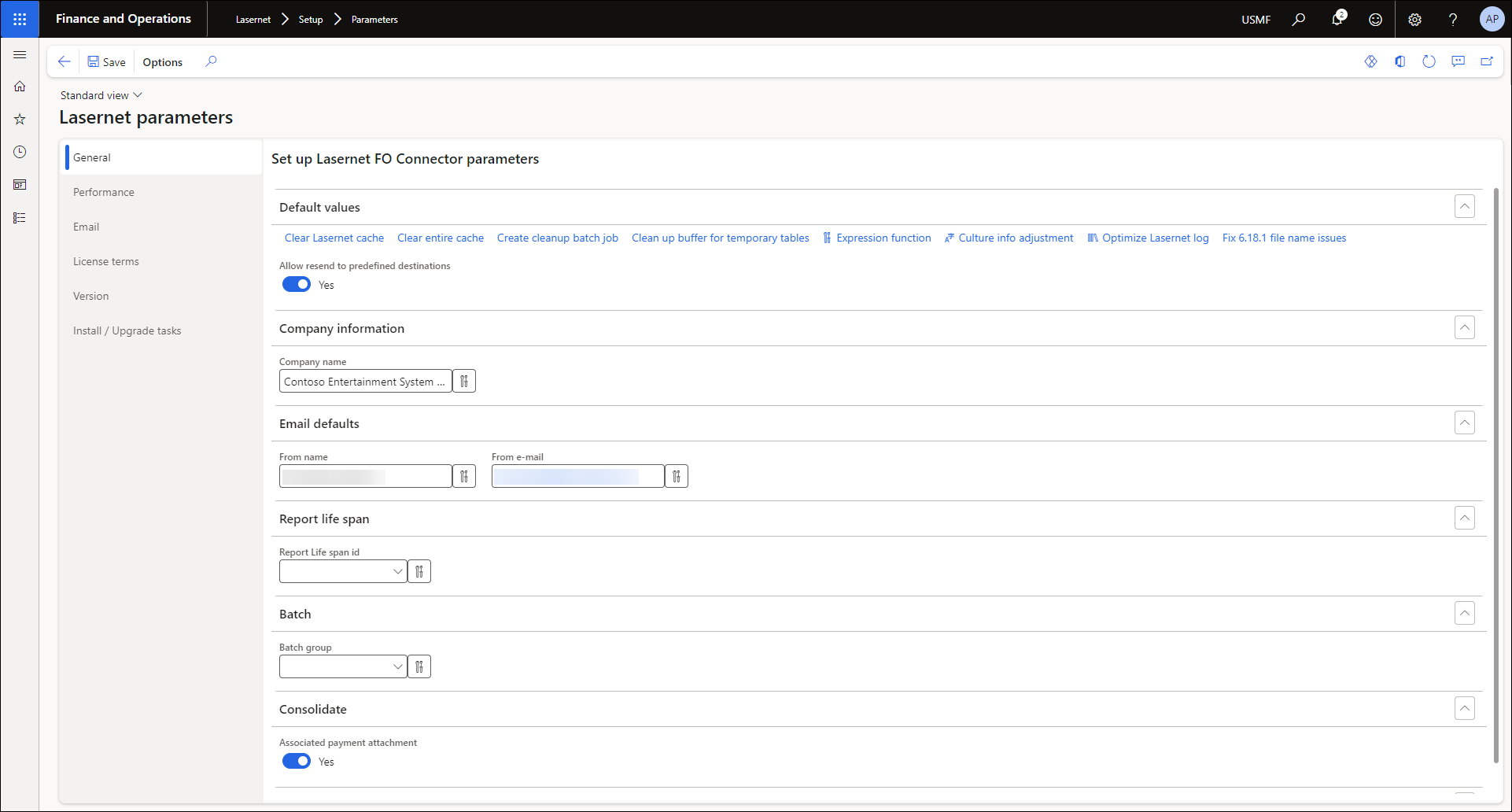- Print
- PDF
The following tables illustrate the General tab of the Lasernet parameters page.

Default values | Description |
|---|---|
Clear Lasernet cache | Refresh the Lasernet cache, such as SharePoint attachments, report parameter references, expression parser, OData metadata, and fix reports. All records in the LACDictData table have also been deleted. Records in LACDictData contain information about all tables, fields, and methods from the Application Object Tree (AOT) in Visual Studio that can be selected in the Query Wizard or report structure. After the records in the table are deleted, the table will be rebuilt with information from the AOT, the first time a user opens the Query Wizard. |
Clear entire cache | Run Clear Lasernet cache and standard Dynamics 365 FO classes to clear cache: SysFlushData - Refresh data cache. SysFlushAOD - Refresh Application Object cache. This will clear cached application object information for all elements in the AOT. SysFlushDictionary - Refresh dictionary cache. SysExtensionCache - Refresh the extension cache. |
Create cleanup batch job | Create a batch job that cleans up temporary DocValue, temporary table buffer, and tables pre-processed in SSRS. |
Clean up buffer for temporary tables | Empties LACBufferForTmpTables. |
Expression function | List of system functions that are available in expressions. Allows adding and further managing methods/functions. |
Culture into adjustment | Allows specifying, adjusting, and overriding the default culture settings if needed. Using this option can be useful in a self-service environment or, for example, when incorrect formatting is applied to numbers (real), date, and/or date/time. It works in the DEV/1Box environment, and it is only an issue in the Dynamics 365 FO self-service environment. The formats are automatically loaded once a culture/language is entered. It is also possible to load default settings to revert to the existing ones. Once culture settings are defined, they are applied in the system. This influences, for example, how numbers, date, and time values are presented. After a report is executed, a corresponding culture/language ID is specified as the LACReportCulutreId value.
|
Optimise Lasernet log | Lasernet log optimizer optimizes sizes of LACArchive and LACArchiveResendData tables. Find out more here. |
Allow resend to predefined destination | Enables resending reports to custom ports or user-defined destinations. |
Company information | Details |
|---|---|
Company name | Adds a tag with the specified value to the XML file. You can use it as a trigger in Lasernet: for example, Formpipe Test or Formpipe Dev. |
Email defaults | Details |
|---|---|
From name | Defines the name of the sender. The field value is used if no other name is specified. |
From email | Defines the email address of the sender. The email address specified in the field is used if no other email address is available. |
Report Life span | Details |
|---|---|
Report Life span id | Unique identifier for the report life span |
Batch | Details |
|---|---|
Batch name | Used for archiving PDF documents. It is very important to specify a batch name; otherwise, Lasernet cannot save the PDF to the archive. |
Consolidate | Details |
|---|---|
Associated payment attachment | Enables placing the Giro report in the initiated report: for example, sales invoice, customer account statement, etc. |


